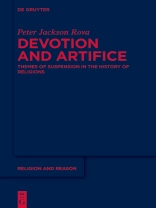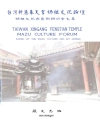How have humans sought to prevent viable assumptions about themselves and their world from being in force, how does this propensity manifest itself, and in what terms has it been theorized and criticized throughout the ages?
Through a diversity of discrete case-studies spanning a vast time-scale (including topics such as paleolithic personal ornaments, pre-ancient ritual economy, ancient philosophy, and modern artful science), this study explores the means by which humans voluntarily suspend habitual patterns of judgement and disbelief in order to perceive the world differently. In recognizing how such modes of suspension can be variously traced back to religious comportments and institutions, a new sense of religious participation is identified beyond the credulous subjunction to artifice and its critical dismissal.
The relevant outcome of this long-term comparative approach is that sincere devotion to a (practical or theoretical, scientific or spiritual) cause and the temporary affirmation of artifice are not mutually exclusive comportments, but rather genealogically akin to the discretely sacred (alchemical, ataraxic, epistemological, spectacular, thaumaturgic, etc.) concerns of a pre-modern world.
关于作者
Peter Jackson Rova, Universität Stockholm, Stockholm, Schweden.












